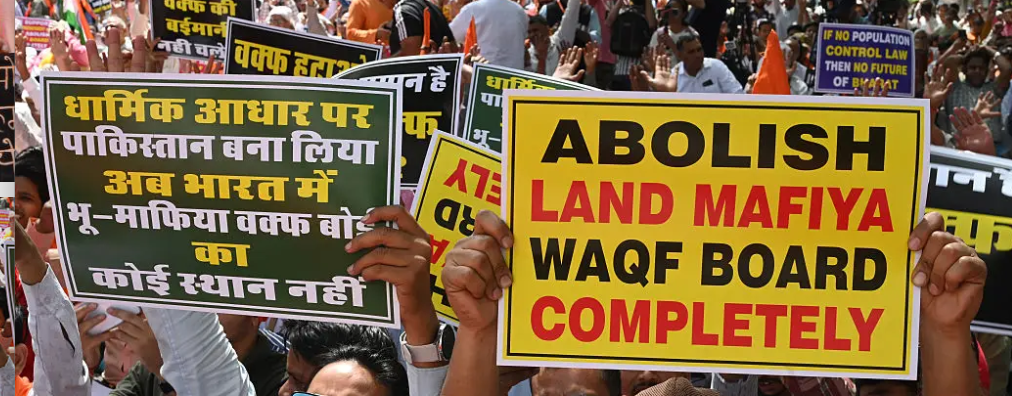Waqf (Amendment) Bill 2024: Key Provisions, Impact & Controversy Explained
Key Provisions of the Waqf (Amendment) Bill, 2024

You May Like : Waqf Board History , Structure and Functioning
The Waqf (Amendment) Bill, 2024, has been a subject of intense debate, bringing significant changes to the management of Waqf properties in India. The government claims that these amendments are aimed at enhancing transparency, preventing misuse, and modernizing the governance of Waqf assets. However, critics argue that the bill could infringe upon the rights of the Muslim community and reduce their control over these properties.
Below is a detailed breakdown of the key provisions of the Waqf (Amendment) Bill, 2024 and its potential impact.
1. Inclusion of Non-Muslims in Waqf Boards
One of the most debated provisions in the bill is the inclusion of non-Muslim members in the administration of Waqf properties. Earlier, Waqf Boards were exclusively governed by Muslim members, as Waqf properties are religious endowments under Islamic law.
Why the Change?
-
The government argues that adding non-Muslims to the boards will increase transparency and reduce mismanagement.
-
It claims that diverse representation can help improve administration and oversight.
Concerns & Opposition
-
Many Muslim organizations and political parties believe that this move dilutes Muslim autonomy over their religious institutions.
-
Critics fear that non-Muslim members may not fully understand the religious significance of Waqf properties.
2. Government Authority Over Waqf Property Ownership Disputes
The bill proposes that government agencies will have the final authority to decide ownership of disputed Waqf properties.
Purpose of the Amendment
-
The government argues that many Waqf properties have unclear ownership records, leading to land disputes and corruption.
-
Centralizing decision-making under government agencies is intended to speed up conflict resolution and prevent illegal occupation of Waqf lands.
Criticism & Concerns
-
Opponents argue that this change undermines the independence of Waqf institutions.
-
There are concerns that the government may misuse this power to take over valuable Waqf properties.
-
Some fear that this could lead to the loss of historic mosques, graveyards, and other religious structures.
3. Removal of ‘ Waqf by User’ Concept
One of the biggest changes in the Waqf (Amendment) Bill, 2024, is the removal of the ‘Waqf by user’ provision.
What is ‘Waqf by User’?
-
Earlier, if a property had been used for religious purposes for a long time (even without official documentation), it could be legally recognized as Waqf land.
Why Was It Removed?
-
The government claims that this provision has been misused to declare public or private land as Waqf property without proper documentation.
-
Authorities argue that this change will prevent land disputes and unauthorized property claims.
Impact & Controversy
-
Many Muslim groups argue that the removal of this provision will result in the loss of historical mosques, shrines, and cemeteries that do not have official land records.
-
Critics fear that it could allow the government to seize Waqf properties that have been in use for centuries.
4. Restrictions on Who Can Dedicate Land to Waqf
The new bill introduces a mandatory eligibility requirement for individuals donating land to Waqf.
New Rules
-
Only individuals who have been practicing Muslims for at least five years can dedicate land to Waqf.
-
This is intended to prevent fraudulent donations and ensure that Waqf properties are legitimately endowed.
Why is This Controversial?
-
Some critics argue that this unnecessarily restricts who can contribute to Waqf, potentially reducing charitable donations.
-
Others feel that this provision could be misused to block genuine land donations.
5. Digitization of Waqf Property Records
To increase transparency, the bill mandates the digitization of Waqf property records.
Objectives
-
Create a centralized digital database of all Waqf properties.
-
Make property details publicly accessible to prevent encroachments and fraud.
-
Use technology to streamline Waqf management and improve efficiency.
Potential Benefits
-
Reduces paperwork errors and loss of records.
-
Helps in tracking illegal encroachments.
-
Enables faster dispute resolution.
Challenges & Concerns
-
Critics argue that digitization alone will not solve mismanagement issues.
-
Some fear that data manipulation or misrepresentation of records could lead to unjust property takeovers.
6. Strengthened Legal Actions Against Misuse of Waqf Property
The bill introduces stricter penalties for the misuse, illegal sale, or encroachment of Waqf properties.
New Legal Provisions
-
Harsher punishments for those found guilty of misusing Waqf properties.
-
Increased government authority to take action against illegal occupations.
Why is This Important?
-
Waqf properties have historically been vulnerable to illegal takeovers.
-
This amendment aims to protect religious assets and ensure they are used for their intended purposes.
Criticism
-
Some argue that the government could use these laws selectively to target specific individuals or groups.
-
Others fear that stricter laws could discourage private investments in Waqf institutions.
7. Addressing Women’s Inheritance Rights
The bill aims to ensure that women are not denied inheritance rights in Waqf properties.
Why is This Important?
-
In many cases, women have been excluded from inheriting Waqf properties due to cultural and legal complexities.
-
The new amendment seeks to prevent discrimination and ensure equal access to Waqf assets.
Expected Impact
-
Strengthens women’s property rights within the Waqf system.
-
Encourages greater participation of women in Waqf administration.
Challenges
-
Some religious groups may oppose reforms that challenge traditional inheritance practices.
-
Effective implementation will require strong legal enforcement.
Conclusion: Balancing Reform and Religious Rights
The Waqf (Amendment) Bill, 2024, introduces significant changes aimed at improving transparency, reducing corruption, and modernizing Waqf administration. However, the bill has also sparked controversy and strong opposition, especially among Muslim groups who fear that these changes could undermine their religious rights.
Key Takeaways:
✔️ Transparency & Digitization – Modernizing Waqf management can help prevent corruption.
✔️ Increased Government Control – May improve efficiency but also raises concerns about property seizures.
✔️ Impact on Muslim Autonomy – Inclusion of non-Muslims and ownership disputes are contentious issues.
✔️ Legal & Social Challenges – Effective implementation will require strong legal safeguards.
As the bill progresses through legislative debates, its long-term impact on Waqf properties and Muslim religious rights remains to be seen. Whether this amendment truly benefits Waqf management or leads to greater disputes will depend on how it is implemented and enforced in the coming years.
